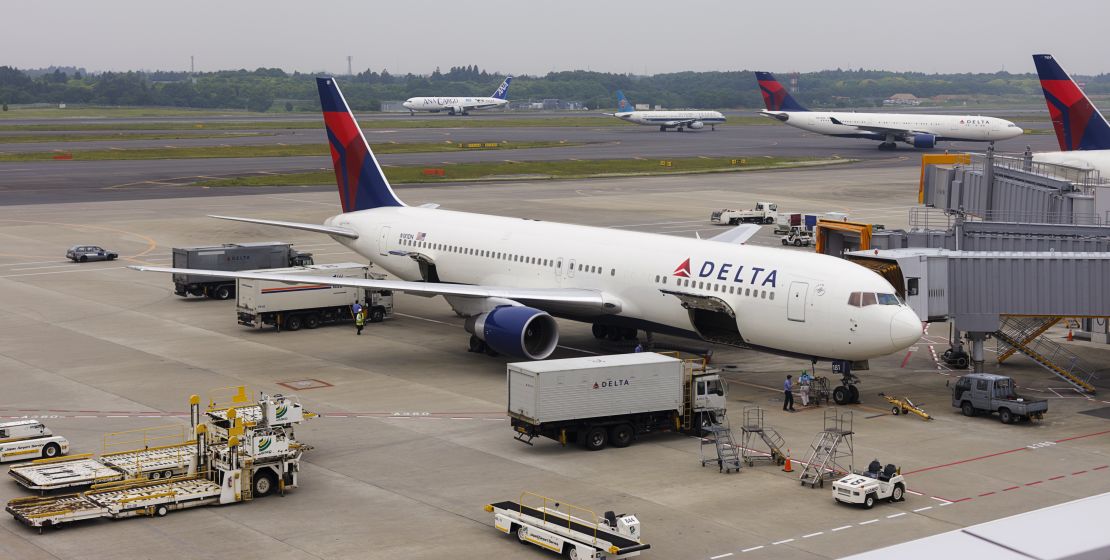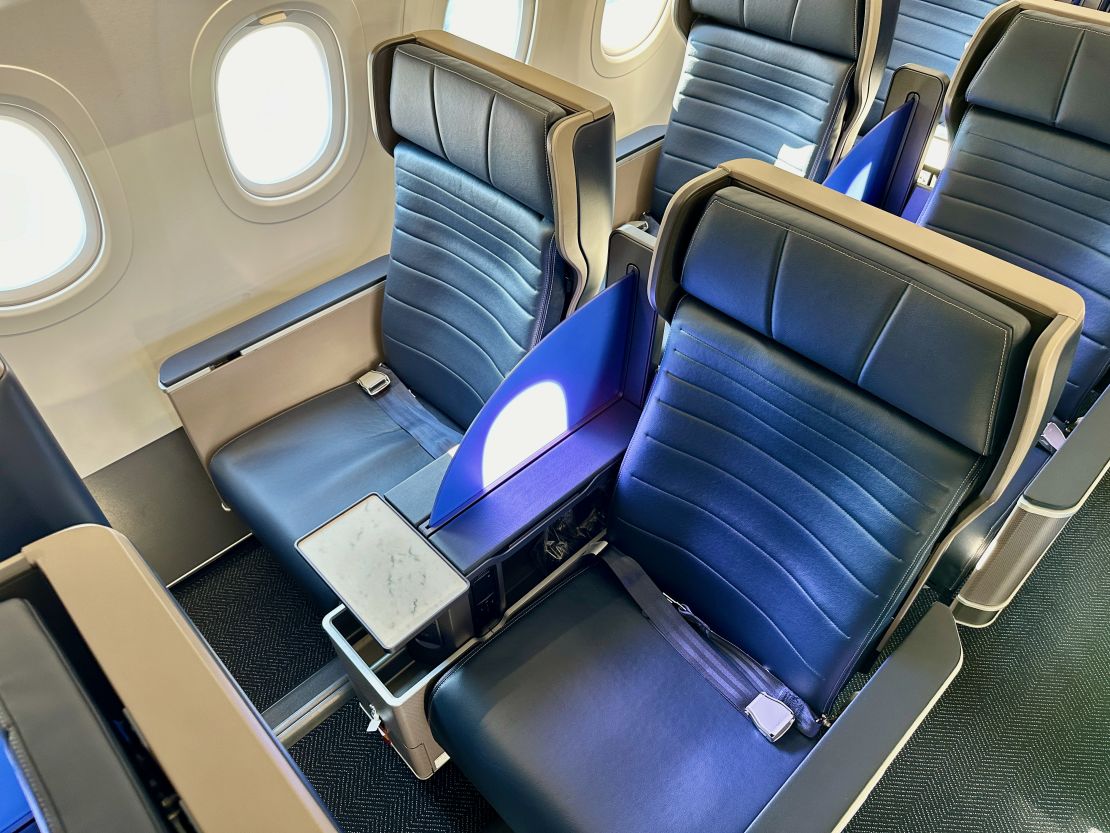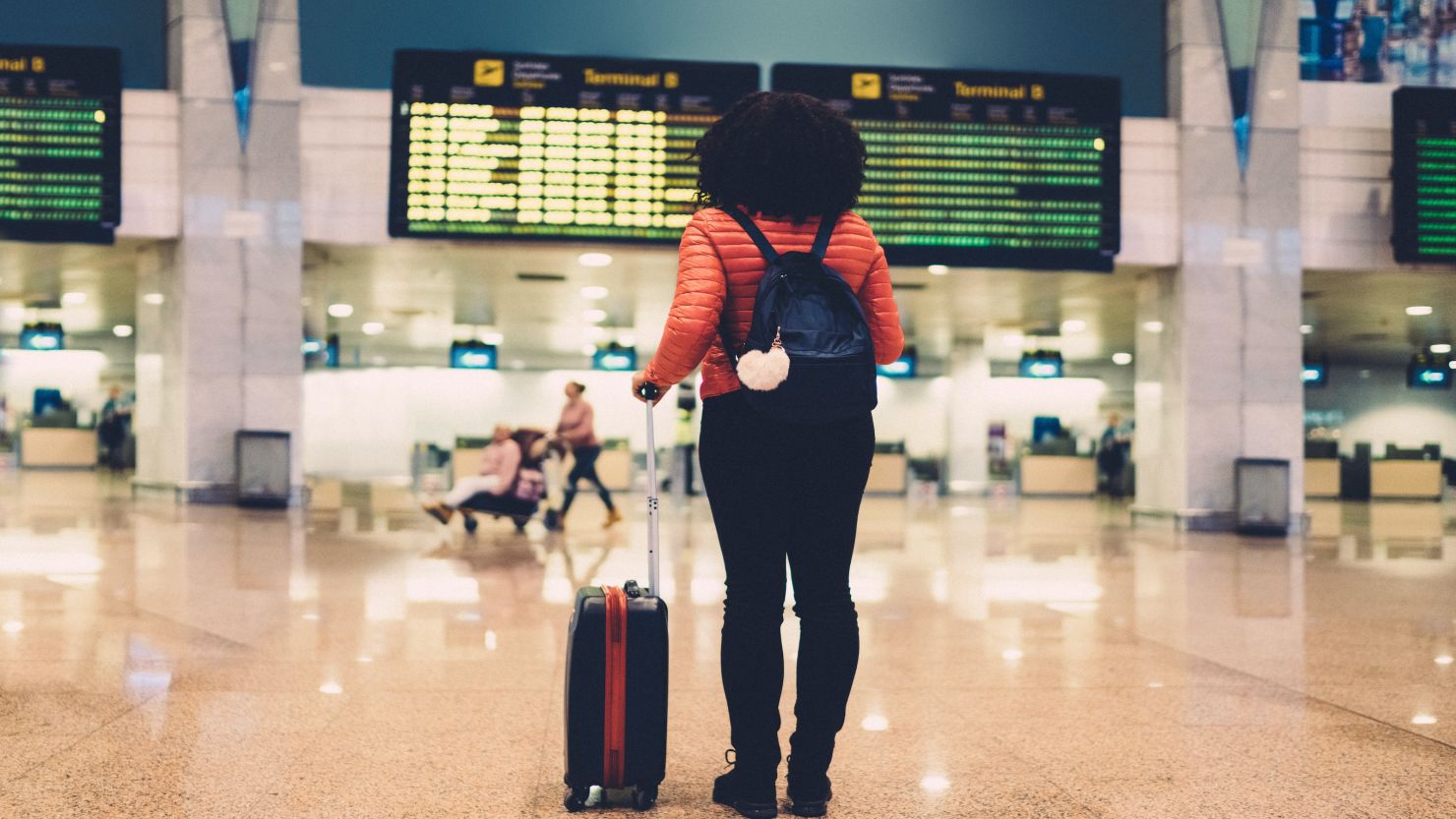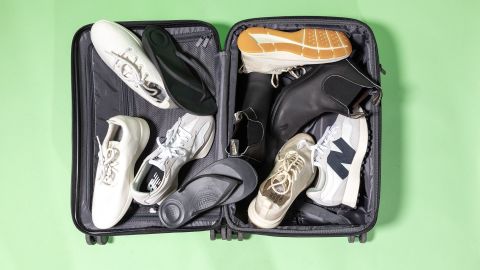CNN Underscored reviews financial products based on their overall value. We may receive a commission through our affiliate partners if you apply and are approved for a product, but our reporting is always independent and objective. Terms apply to American Express benefits and offers. Enrollment may be required for select American Express benefits and offers. Visit americanexpress.com to learn more.
Everyone can benefit from budget travel tips, affordable travel gifts and budget-friendly travel essentials.
The joy of travel is heightened when you’re confident you’re not overspending and you’re securing great deals. Enjoying a luxurious vacation without draining your bank account is entirely feasible; it just requires a bit of creativity in your planning, saving and execution. Budget travel doesn’t entail uncomfortable bus rides, backpacking adventures or subpar hostels.
Cost-effective travel is about smart choices and the implementation of savvy travel strategies. These budget travel tips are designed to assist you in planning and enjoying a more affordable vacation, making your money go further.
Use the right credit cards

Credit cards offer so many benefits within the travel sphere. From cards with no foreign transaction fees to getting free checked bags to obtaining elite status or lounge access, here are some of the best ways you can utilize credit cards to save money when traveling.
Credit cards for traveling abroad
Selecting a card with no foreign transaction fees, like the ?Chase Sapphire Preferred? Card or the Capital One Venture Rewards Credit Card, is an easy way to avoid transaction fees abroad, which often range between 3% and 5% of your total purchase. These fees can seriously add up on long trips, so get a new credit card before you leave.
Further, paying with a credit card gives you added peace of mind when traveling. Carrying plastic instead of cash means you can simply replace your card if your wallet is lost or stolen. Many card issuers will even rush you a new card abroad if needed.
Credit cards for frequent flyers
First off, make sure you’re making any airline purchases with cards that offer additional points for travel purchases. It may not help you for this trip, but once you’ve got a stash going, you may be able to fly or stay for free on your next vacation.
Flexible rewards cards, such as the Chase Sapphire Preferred, awards 2 points per dollar on travel and 3 points per dollar on dining. Plus, you can transfer the Chase Ultimate Rewards points you earn to various airline and hotel loyalty programs, including United MileagePlus, Southwest Rapid Rewards, World of Hyatt and others.
Or if you’re a brand loyalist, an airline or hotel loyalty card could be the way to go. These earn a specific type of airline miles or hotel points which are not generally transferable to other programs.
Airline loyalty credit cards also offer perks such as free checked bags for both you and your travel companions. For example, the United Quest card gives you and your companion on your reservation two standard free checked bags on United and United Express-operated flights.
Credit cards that can save the day (and save you money)
When things go awry (and let’s face it, sometimes they do) turning to the credit card you paid with for help is a top-budget travel tip. Many cards offer trip insurance, such as the Chase Sapphire Reserve? which provides $10,000 per covered trip of trip cancellation or trip interruption insurance. Meanwhile, The Platinum Card? from American Express offers up to $3,000 for baggage delay or damage.
Both these cards also offer Priority Pass membership, giving cardholders access to airport lounges that have amenities like complimentary food and beverages, which means travelers won’t have to fork over extra cash for airport food. Lounge access can be especially beneficial during flight delays, flight cancellations or long layovers, offering travelers a relaxing space to rest, eat and drink at no additional cost.
Credit cards for road trippers
Some credit cards offer bonus points or cash back on at gas stations, like the Citi Premier? Card (3 points per dollar on gas).
And don’t forget about cards like the Chase Sapphire Reserve and Chase Sapphire Preferred that offer primary rental car coverage in most countries. This means card holders won’t have to purchase pricey insurance add-ons when renting as they’re already covered.
Some cards like Amex Platinum Card and Capital One Venture X Rewards Credit Card give card holders complimentary car rental elite status with companies like Hertz and Avis, which offer discounts and upgrades.
Credit cards for hotel buffs
Cards like the Amex Platinum Card give card holders hotel elite status, which offers benefits like complimentary breakfast and room upgrades.
Co-branded hotel credit cards like the Marriott Bonvoy Brilliant? American Express? Card and the Hilton Honors Aspire Card go a step further, giving card members perks like free hotel nights and resort credits. Some cards even offer a yearly travel credit, so you can get money back for hotels, airfare and more. For example, the Chase Sapphire Reserve gives users $300 back annually on travel purchases.
Pack light and bring key items with you
The way you pack can end up saving you money when traveling. Packing light means you won’t have to pay baggage fees. And spending money on a few budget travel items can make it easier to pack light. For example, packing cubes, such as the Paravel Packing Cube Quad, can help you pack more efficiently to fit everything in your carry-on.

Travel items like Vapur’s foldable water bottles or Ethique’s solid shampoo can also help save space in your suitcase. Carrying a reusable water bottle is both environmentally conscious and budget-friendly, eliminating the need to purchase single-use plastic water bottles.
Redeem points, miles and credit card rewards

Putting as many purchases as you can on points-earning credit cards will ensure that when it’s time to plan your vacation, you have a stash of travel rewards points and miles to work with.
You can take this as far as you like, even planning your vacation around the points and miles you already have to make things more affordable, like getting a specific points-earning credit card for a specific trip you have in mind (for example, getting the Iberia Visa Signature? Card to earn points for flights to Spain) or getting extra creative with your point redemptions. Having points-earning strategies related to your dream or bucket list trips can ensure you’re able to save up enough points or miles to take them.
Flexible currency points, like American Express Membership Rewards, Bilt Rewards, Capital One miles, Chase Ultimate Rewards and Citi ThankYou points, are generally the most valuable because you can transfer them to various hotel and airline partners.
Earning Capital One miles using a card like the Capital One Venture X Rewards Credit Card is extra valuable for travelers who might want to stay in a home rental or take a cruise, as you can use this points currency to “cover” travel purchases on your statement that traditionally can’t be bought with points or miles within 90 days of purchase.
Choose an affordable destination
If you’re traveling on a budget, travel to destinations where your money goes further. For example, popular tourist destinations are often more expensive. But you may be able to have a luxury trip on a budget if you travel to the right places.
Spots like the Maldives, New York City, St. Barths, Paris, Santorini and Hong Kong are traditionally more expensive. Instead, consider Thailand, Chicago, Mexico, Madrid, Crete or Taipei as alternatives. This strategy works well if you aren’t attached to visiting a destination and simply want a beach trip or a jaunt to Europe.

If you’d rather stay within the US, cities such as New Orleans or Atlanta are alternatives to pricier hubs like New York or San Francisco. Beach trips to San Diego and Miami can be exchanged for more affordable stretches of sand like Myrtle Beach or St. Petersburg.
Select the right season
If you want to go to a more expensive tourist destination — your heart is set on Paris, St. Barths, the Maldives or Santorini — you should go. An easy budget travel tip is to consider shoulder seasons.
Shoulder seasons are the time between the low season (usually winter or rainy/hurricane season) and the high season (summer/dry season). In Europe, this is usually May and October; in the Caribbean or in the Maldives, it’s April to May. Things will still be open and operating, but you’ll see fewer crowds and lower prices.
Book refundable rates and avoid OTAs
Sometimes, flexible rates for airfare, accommodation and other travel expenditures are more expensive. But choosing this option can save you money if you need to cancel or change your trip.
We generally recommend avoid booking through online travel agencies like Expedia or Priceline too. Although a deal may seem too good to pass up, it’s much more complicated to cancel or move around a trip booked via an OTA. You may never get your money back or spend hours waiting on hold. So, even if it’s slightly more expensive, consider booking a refundable rate directly. This could save you lots of money (and time) in the long run.
Have a specific accommodation strategy
While many travelers prefer hotels, opting for vacation rentals can be a way to cut costs, especially for families or large groups. Booking a vacation rental is one of the top tips for family travel, offering a more cost-effective solution, especially when traveling with children.
Additionally, with a vacation rental, you have the convenience of cooking your own meals, which could save on dining expenses and doing laundry at home. This not only allows for packing lighter but contributes to savings on checked-baggage fees.
When traveling abroad, consider hostels, B&Bs and beyond. In Asia and Europe, some hostels can be really comfortable, offering travelers private bedrooms and bathrooms similar to a boutique hotel.
And get local with your accommodation. For example, popular places to stay in rural Italy are agriturismos, which are small, often family-owned farmhouses or ranches that offer meals (usually locally grown food from the property) and lodging. Pensiones in Spain are tiny hotels or hostels that can be warm and welcoming places to spend the night.

If you’re traveling for an extended period of time, think outside the box to save some additional funds. One key budget travel tip is to consider renting out your own place, housesitting or doing a home exchange to offset your travel costs.
If you want to stay at a hotel, traveling in shoulder season can save you money when paying cash rates. And many hotels have off-peak award night pricing during low or shoulder season that’s cheaper than high-season peak pricing when paying with points.
Be careful with roaming
Always check with your cell phone company before traveling to find out what’s included in your plan and how much roaming costs so you’re not hit with surprise fees.
If it’s expensive, consider purchasing a local SIM card at your destination. These provide a local phone number and both data and calls for a low fee. Find them at the airport, local cell shops or even grocery stores. A quick search on Google before your trip can help you figure out where to find SIM cards in your destination before you even leave.
Alternatively, you can use eSIM services if you have a compatible phone. One of our favorites is Airalo, which lets you buy data-only eSIM cards for use in hundreds of countries around the world.
Find free activities ahead of time
Discovering fantastic free activities while traveling may require some planning. Prior to your trip, research free walking tours, cost-free activities and the days when certain museums offer free admission.
Explore blogs, guidebooks and articles, particularly those authored by locals familiar with the destination, for insights into engaging and affordable activities. Determine which activities are enhanced with a guide and which you can explore independently. Being well-informed before your travels will empower you to resist vendors or hawkers selling tours and guides, as well as enable you to gauge the typical prices for these services.
Avoid tourist traps and scams
Prioritizing both savings and safety is crucial during travel. Conducting thorough research in advance stands out as a key travel tip, aiding in the awareness of potential tourist scams or traps, particularly when journeying abroad.
Planning airport transportation or familiarizing yourself with standard taxi fares beforehand proves invaluable in navigating the hustle at the airport, where drivers may aggressively promote their services. Employing rideshare services like Uber and Lyft and acquiring basic local language skills further contribute to ensuring you won’t fall prey to overpriced taxis or deception in local markets.
Bottom line
Incorporating these budget-friendly travel tips into your plans saves money and enhances the overall joy of travel. Whether it’s leveraging the benefits of credit cards for points, choosing affordable destinations or being strategic with accommodation choices, these tips pave the way for cost-effective and enjoyable vacations.
Additionally, staying informed about roaming charges, seeking out free activities and avoiding tourist traps contribute to a safer and more economical travel experience. By adopting these practices, you can make the most of your travel budget, turning your dream vacations into affordable and memorable realities.
Disclaimer: Baggage Insurance Plan coverage can be in effect for Covered Persons for eligible lost, damaged, or stolen Baggage during their travel on a Common Carrier Vehicle (e.g. plane, train, ship, or bus) when the Entire Fare for a ticket for the trip (one-way or round-trip) is charged to an Eligible Card. Coverage can be provided for up to $2,000 for checked Baggage and up to a combined maximum of $3,000 for checked and carry-on Baggage, in excess of coverage provided by the Common Carrier. The coverage is also subject to a $3,000 aggregate limit per Covered Trip. For New York State residents, there is a $2,000 per bag/suitcase limit for each Covered Person with a $10,000 aggregate maximum for all Covered Persons per Covered Trip. Eligibility and Benefit level varies by Card. Terms, Conditions and Limitations Apply. Please visit americanexpress.com/benefitsguide for more details. Underwritten by AMEX Assurance Company.
Looking for a new travel credit card? Check out?CNN Underscored Money’s?list of the?best credit cards?currently available.

















